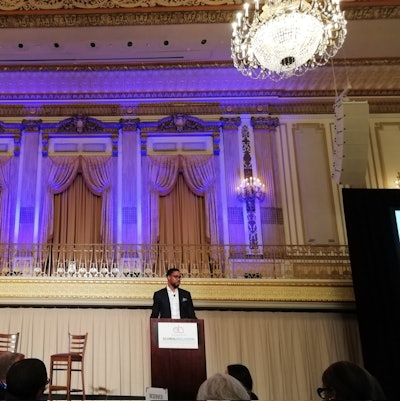Diversity Abroad—a membership consortium that inspires and supports educators, policymakers, and other stakeholders in advancing diversity, equity, and inclusion in and through global education and exchange—kicked off its annual this week, drawing hundreds of participants to Chicago from across the nation.
The annual meeting—now in its 11th year—comes as many universities are struggling to rebound after the COVID-19 pandemic temporarily halted study abroad programs across the world. Andrew Gordon is the Founder and CEO of Diversity Abroad
Andrew Gordon is the Founder and CEO of Diversity Abroad
“Some institutions have rebounded, and they are even above their pre-COVID numbers as far as outbound student mobility as well as inbound international students and you have other institutions where it’s the opposite,” said Andrew Gordon, a social entrepreneur, and the Founder and CEO of Diversity Abroad. “They’ve actually dropped, and they have not rebounded from their COVID numbers.”
The upscale in the numbers, said Gordon who founded Diversity Abroad 17 years ago, is largely due to resource allocation and the student leaders who have championed the importance and benefits of education abroad programs. “There’s work as a field, as a sector that we have to do in order to ensure that equitably, our numbers are rebounding.”
Centering student equity and pushing institutions to be more intentional in building inclusive student success, is a central part of the five-day convening.
“The imperative has been there, but now even moreso,” said Gordon adding that it is critically important to expand outreach to populations who have been historically served equitably in international education.
“In order for us to be a very important part of the higher education ecosystem, we have to not just recruit, but recruit and support a more diverse population,” he said. “For us, this global inclusion conference is such a unique place because it merges diversity, equity, inclusion and belonging and global education together in a really unique way that allows participants to really think about how we leverage global education to achieve inclusive student success.”
It's that mission that drew Derrick Banks, a faculty member and counselor at Santa Barbara City College to the conference.
Students of color, Banks said, "need examples of people who look like them who can talk about their experiences and how they were able to afford to study abroad; how they were able to talk their parents into going abroad, especially if many of their parents didn't go to college."
Ofelia Hernandez, an Education Abroad Advisor at the University of the Pacific in Stockton, Calif., said that pre-pandemic, her university was sending between 60-80 students abroad. Since the pandemic, those numbers have hovered around 25. She has been busy building collaborations with other departments and programs on her campus to increase interest in study abroad programs.
She arrived at Diversity Abroad to network and to learn from her colleagues in the field.
"Meeting people from other institutions and listening to some of the things they have done, has given me some ideas on things I might be able to implement on my campus," she added.


















